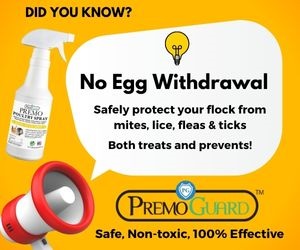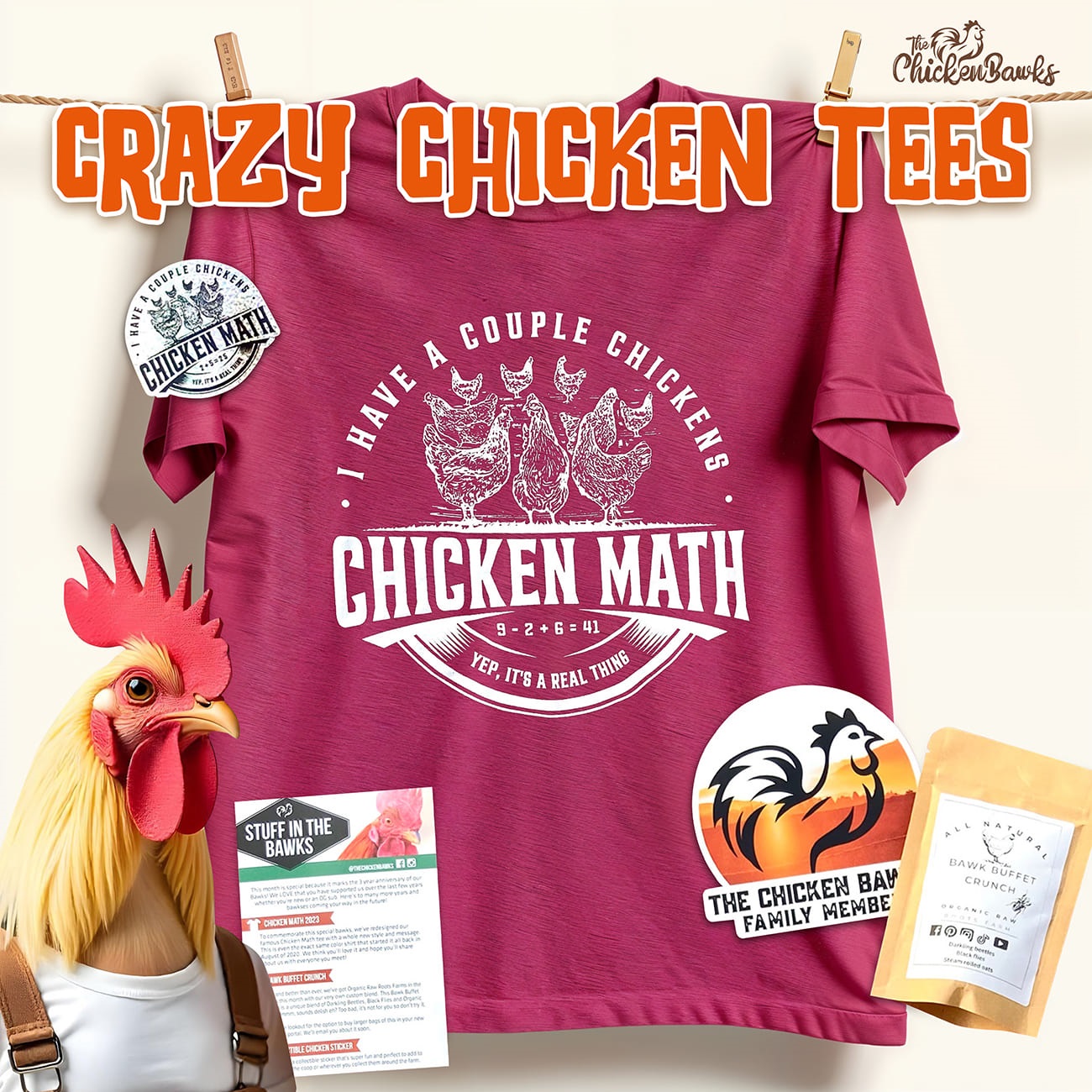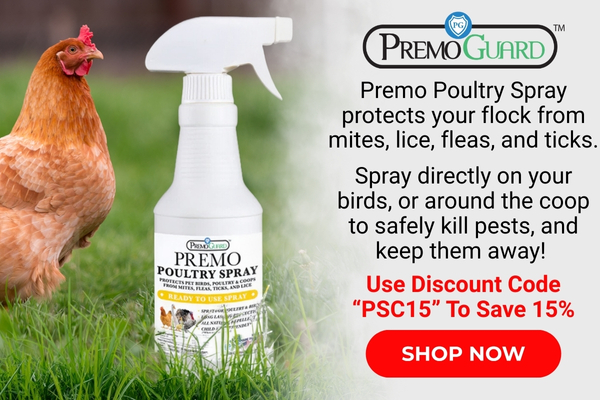Chickens And Winter:
How To Keep Them Safe
Written by Chris Lesley
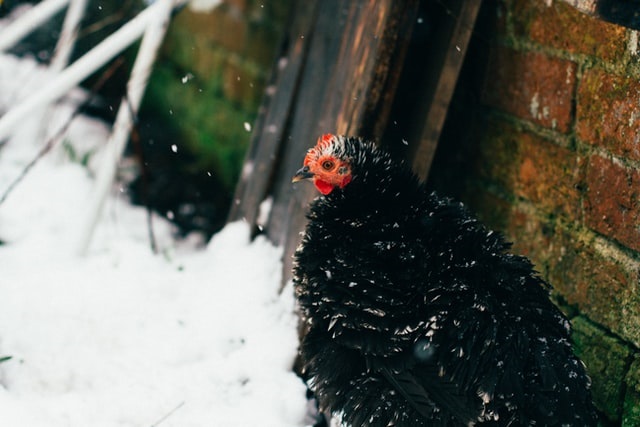 Photo by Sarah Halliday on Unsplash
Photo by Sarah Halliday on UnsplashThe weather is getting colder, the days are getting shorter, and Christmas music is already unavoidable on the radio, which means winter is well upon us. While the season for some people conjures up images of hot chocolate, snowmen, and some much-needed time off from work and school, for chicken owners it often means more work as they brace themselves for an onslaught of snow, ice, and hungry animals driven into chicken coops in search of warmth and food. Fortunately, as with most things, an ounce of prevention is worth a pound of cure in the predator department, and a few simple precautions will go a long way in keeping your flock happy, healthy, and whole through the long cold months ahead.
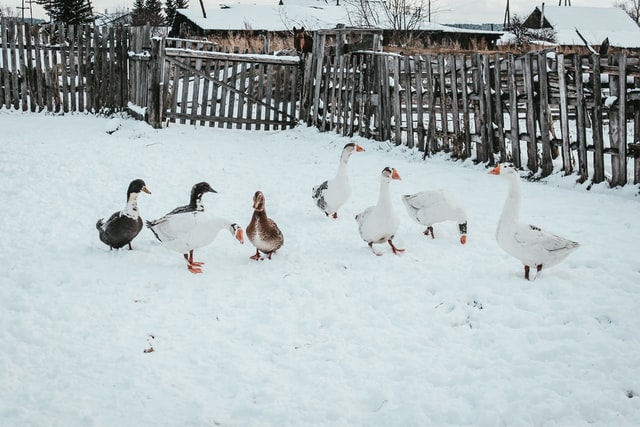 Photo by pure julia on Unsplash
Photo by pure julia on Unsplash- Bury your fencing at least a foot into the ground. This is good advice year-round to foil burrowing predators like foxes and weasels, and it might seem like it would matter less as the ground starts to freeze, but it actually becomes especially important in the winter, when strong winds and accumulating snowdrifts only make it easier for fencing to be torn or torn up without anyone noticing until it’s too late. These “security breaches” are one of the easiest ways for predators to get access to the flock, so owners should prevent them by using fine, strong hardware mesh (instead of chicken wire, which has holes too small for chickens but big enough for anything that wants to eat them) and burying it at least 12 inches in the dirt (preferably at some point before the ground turns to ice), which should be deep enough to deter even the hungriest of burrowing predators.
- Install an automatic door on your chicken coop. Although the idea of removing whatever door you currently have on your chicken coop and replacing it with something that relies on motors, batteries, and moving parts might seem exhausting, it’s well worth the effort, not just because of all the time and energy you’ll save not having to lock up the chickens every night, but also because keeping the chickens inside at night is the best and easiest way to foil predators, and automatic coop doors are probably the best and easiest way to make that happen. While all those moving parts will mean an increased need for maintenance, especially in regions prone to icing and other harsh weather, and owners may also need to keep an eye out for when the time comes to replace the batteries (though not all automatic doors even use batteries), the saved labor in getting the chickens in and out of the coop – especially in the winter, when they need all the daylight they can get – more than makes up for it.
- Do your research on the predators you might be facing. It’s tempting to imagine winter as a time when all the predators either move south to escape the cold or dig in underground to sleep through it. Unfortunately, while this is true of some predators, others remain active in the winter, and chicken owners further south might even be facing increased predation in the colder months, as seasonal birds of prey and other predators flock to their milder climates. Knowing which animals might be preying on the birds, and when, will help owners know which precautions are the most important for them to take and what to be on the lookout for as they monitor their coops and flocks.
- Collect eggs promptly and frequently. While obviously no chicken owner can pick up every egg as soon as it’s laid, getting them out of the coop and into the kitchen as quickly as possible will actually go a long way not just toward your breakfast, but also keeping egg-snatching predators away from the flock. For rats and snakes that are more interesting in unresisting eggs than tackling comparatively massive full-grown hens, leaving eggs to sit in the coop is akin to laying out an all-you-can-eat buffet and waiving the cover charge. Owners should do their best to stay on top of egg collection, checking the coop at least once every day, in order to minimize the threat to their flock and keep interlopers out of the hen house.
- Maintain the health of the flock. Winter, unfortunately, is a time for increased disease transmission and weakened immune systems for hens as well as humans, and any sort of bout with illness will only make the hens more susceptible to opportunistic predators who prefer a weakened target. Taking extra precautions to protect the health of the flock, like weekly health checks, maintaining excellent ventilation in the coop while preventing cold drafts, providing extra bedding for warmth, and applying Vaseline to exposed skin to prevent frostbite, will all help keep the girls string enough to stay healthy and intimidate any predators looking to make an easy meal of a sick hen.
Predation, unfortunately, is a year-round problem for chicken owners. Although winter may provide a brief respite from the threats that migrate or hibernate, other animals remain determined to munch on chickens and their eggs, and often become more so as other food sources dwindle. Luckily, a little bit of preparation ahead of time and vigilance throughout the season can usually prevent even the most determined of winter predators from turning a chicken coop into a five-star restaurant.
What can we help you find? Search the website:
What's New Around Here?
-
IA - Rhode Island Reds
Exhibition quality birds with focus on meat quality and egg production. Single comb and Rose comb. Bloodlines dating back over 100 years. Email jamey.meyer4@gmail.com -
Eastern Pigeon Expo
Information on the Eastern Pigeon Expo -
Wanted: German Owl Pigeon
Looking for an Old German Owl pigeon as an indoor companion pet. I am located in CT, but am willing to drive to the surrounding nearby states. Color, gender,


